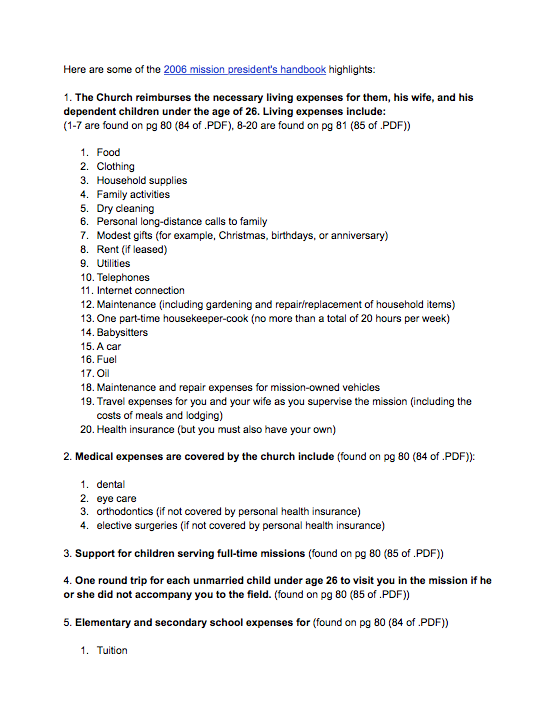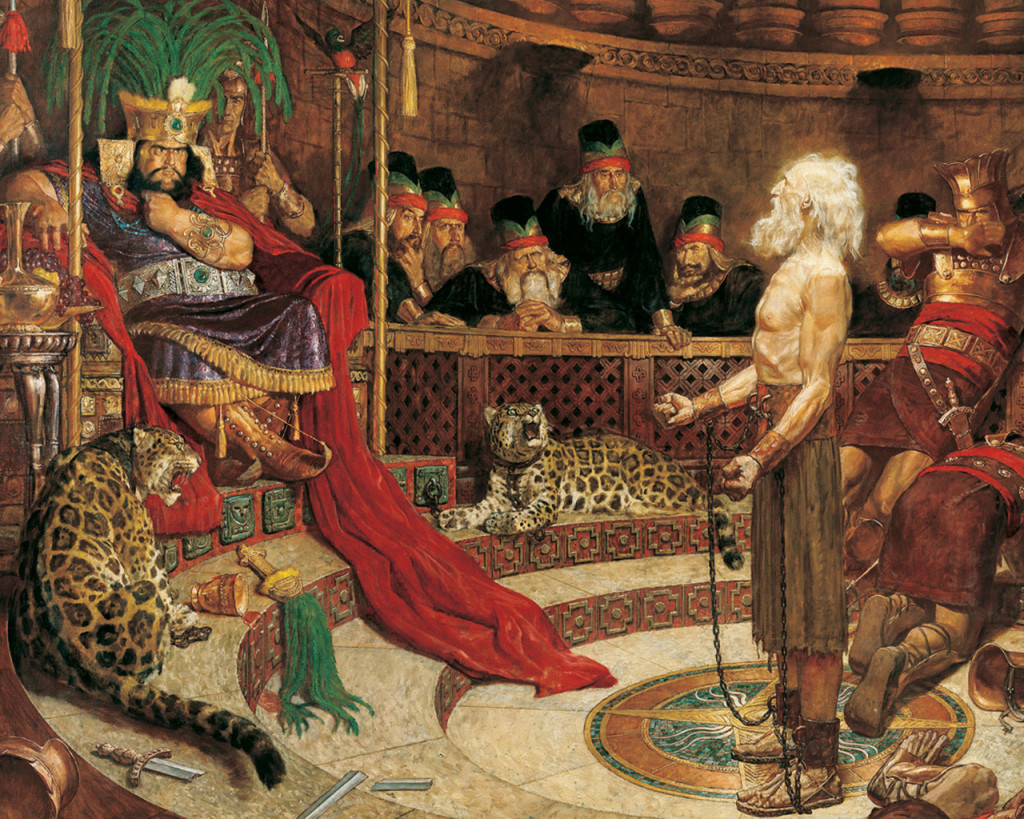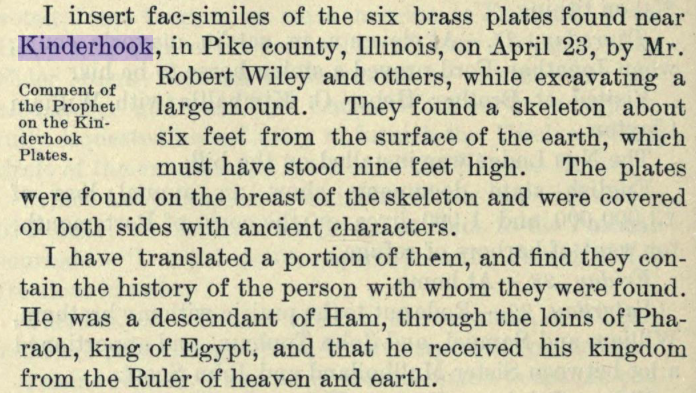“None Could Deliver Them but the Lord”
Mosiah 18–24
LDS manual: here
Reading
I haven’t been looking forward to this reading. It concerns the rather mundane details of people moving back and forth from city to city. It’s dull.
And that was fine, back in the days when I thought the Book of Mormon was a true historical book. I thought that if I was bored, maybe it was because I wasn’t doing something right. Maybe the next time the Book of Mormon came around in the church curriculum, I could pay more attention and care about it.
Now, post-deconversion, I realise that it’s not me. It’s it. And so I find it hard to reread the Book of Mormon and care about its turgid plot and one-dimensional characters (well, the good ones, anyway).
There’s a bit of poetic justice, though. King Noah’s not very popular. A man named Gideon decides to take action.
Mosiah 19:4 And now there was a man among them whose name was Gideon, and he being a strong man and an enemy to the king, therefore he drew his sword, and swore in his wrath that he would slay the king.
19:5 And it came to pass that he fought with the king; and when the king saw that he was about to overpower him, he fled and ran and got upon the tower which was near the temple.
19:6 And Gideon pursued after him and was about to get upon the tower to slay the king, and the king cast his eyes round about towards the land of Shemlon, and behold, the army of the Lamanites were within the borders of the land.
19:7 And now the king cried out in the anguish of his soul, saying: Gideon, spare me, for the Lamanites are upon us, and they will destroy us; yea, they will destroy my people.
19:8 And now the king was not so much concerned about his people as he was about his own life; nevertheless, Gideon did spare his life.
Bit of mind-reading there.
King Noah tells the men to leave their families and run away from the Lamanites.
Mosiah 19:11 Now it came to pass that the king commanded them that all the men should leave their wives and their children, and flee before the Lamanites.
19:12 Now there were many that would not leave them, but had rather stay and perish with them. And the rest left their wives and their children and fled.
But King Noah gets his.
Mosiah 19:19 Now they had sworn in their hearts that they would return to the land of Nephi, and if their wives and their children were slain, and also those that had tarried with them, that they would seek revenge, and also perish with them.
19:20 And the king commanded them that they should not return; and they were angry with the king, and caused that he should suffer, even unto death by fire.
That’ll learn him.
Main ideas for this lesson
Baptism
Alma does some baptising at the waters of Mormon,
Mosiah 18:8 And it came to pass that he said unto them: Behold, here are the waters of Mormon (for thus were they called) and now, as ye are desirous to come into the fold of God, and to be called his people, and are willing to bear one another’s burdens, that they may be light;
18:9 Yea, and are willing to mourn with those that mourn; yea, and comfort those that stand in need of comfort, and to stand as witnesses of God at all times and in all things, and in all places that ye may be in, even until death, that ye may be redeemed of God, and be numbered with those of the first resurrection, that ye may have eternal life —
Ask: What good things does this section of the Book of Mormon encourage readers to do? (Bear one another’s burdens, mourn with those that mourn, comfort those that stand in need of comfort.)
Which of these things can you do without a god or a religion?
Did the programs of the church (notably Home and Visiting Teaching) help you to accomplish these things, or did they seem to be boxes to be ticked, with no real function?
Ask: If you’re no longer LDS, how are you trying to accomplish these things now?
The baptismal prayer of Helam is another good example of how the church has changed since the writing of the Book of Mormon. Here’s the prayer.
Mosiah 18:12 And now it came to pass that Alma took Helam, he being one of the first, and went and stood forth in the water, and cried, saying: O Lord, pour out thy Spirit upon thy servant, that he may do this work with holiness of heart.
18:13 And when he had said these words, the Spirit of the Lord was upon him, and he said: Helam, I baptize thee, having authority from the Almighty God, as a testimony that ye have entered into a covenant to serve him until you are dead as to the mortal body; and may the Spirit of the Lord be poured out upon you; and may he grant unto you eternal life, through the redemption of Christ, whom he has prepared from the foundation of the world.
18:14 And after Alma had said these words, both Alma and Helam were buried in the water; and they arose and came forth out of the water rejoicing, being filled with the Spirit.
In the modern church, the baptismal prayer is invariant. It has to be said the same way (except for the person’s name), and if the speaker gets the wording different, the act is invalid and has to be repeated.
And yet, the wording today is different from this prayer.
When an individual is baptized, the person with the proper priesthood authority goes down into the water with the candidate, raises his right arm to the square, calls the individual by the full legal name, and says, “Having been commissioned of Jesus Christ, I baptize you in the name of the Father, and of the Son, and of the Holy Ghost. Amen.“
So what’s going on? Are there two prayers? Did God say, “Oh, whatevs, I know what you mean”? Or had the writer of the Book of Mormon not thought this part through?
I think this story comes at a time when the Mormon concept of the gospel was just beginning. The gospel is not “one eternal round”, and it’s not an already well-defined body of doctrine. It started at a point in time, and it goes back no farther than this. It would take it a while to get its story straight.
Paid ministry
Alma, having done pretty well in the King Noah days, tells everyone that priests should be poor.
Mosiah 18:26 And the priests were not to depend upon the people for their support; but for their labor they were to receive the grace of God, that they might wax strong in the Spirit, having the knowledge of God, that they might teach with power and authority from God.
Ask: Do church leaders get paid for their labour?
Mormons are fond of saying that they have a lay clergy, and for much of the leadership — bishops and stake presidents on down — this is true. But this ignores the amount paid to the general leadership. The financial opacity of the church makes it difficult to know how much this is, but one leaked document (courtesy of this Reddit thread) shows the benefits of being a mission president. It’s not a paid gig, but the benefits aren’t cheap.
Two escapes
The writer of the Book of Mormon is spinning his wheels a bit. He tells the more or less the same story twice. This is something the Old Testament does. Lots of times, there would be two version of the same story, and the Bible writers would just throw them both in. Hey — it’s an evidence of the Book of Mormon’s hebraic origins! /s
In the first story, the people of Limhi manage to escape the Lamanites by getting guards drunk.
Mosiah 22:3 Now it came to pass that Gideon went forth and stood before the king, and said unto him: Now O king, thou hast hitherto hearkened unto my words many times when we have been contending with our brethren, the Lamanites.
22:4 And now O king, if thou hast not found me to be an unprofitable servant, or if thou hast hitherto listened to my words in any degree, and they have been of service to thee, even so I desire that thou wouldst listen to my words at this time, and I will be thy servant and deliver this people out of bondage.
22:5 And the king granted unto him that he might speak. And Gideon said unto him:
22:6 Behold the back pass, through the back wall, on the back side of the city. The Lamanites, or the guards of the Lamanites, by night are drunken; therefore let us send a proclamation among all this people that they gather together their flocks and herds, that they may drive them into the wilderness by night.
22:7 And I will go according to thy command and pay the last tribute of wine to the Lamanites, and they will be drunken; and we will pass through the secret pass on the left of their camp when they are drunken and asleep.
22:8 Thus we will depart with our women and our children, our flocks, and our herds into the wilderness; and we will travel around the land of Shilom.
22:9 And it came to pass that the king hearkened unto the words of Gideon.
22:10 And king Limhi caused that his people should gather their flocks together; and he sent the tribute of wine to the Lamanites; and he also sent more wine, as a present unto them; and they did drink freely of the wine which king Limhi did send unto them.
And then the people of Alma escape the Lamanites when God makes the guards fall asleep.
Mosiah 24:16 And it came to pass that so great was their faith and their patience that the voice of the Lord came unto them again, saying: Be of good comfort, for on the morrow I will deliver you out of bondage.
24:17 And he said unto Alma: Thou shalt go before this people, and I will go with thee and deliver this people out of bondage.
24:18 Now it came to pass that Alma and his people in the night-time gathered their flocks together, and also of their grain; yea, even all the night-time were they gathering the flocks together.
24:19 And in the morning the Lord caused a deep sleep to come upon the Lamanites, yea, and all their task-masters were in a profound sleep.
24:20 And Alma and his people departed into the wilderness; and when they had traveled all day they pitched their tents in a valley, and they called the valley Alma, because he led their way in the wilderness.
If drunkenness or sleep are good enough ideas for the people of Limhi and Alma to escape from the Lamanites, then why wasn’t it good enough for Nephi to get the plates from Laban?
Additional lesson ideas
Mosiah or Benjamin?
When God helped Joseph Smith translate the Book of Mormon, he made a mistake: King “Mosiah” was written as “Benjamin”.
2) Changing Benjamin to Mosiah
The original text of Mosiah 21:28 reads:
And now Limhi was again filled with joy, on learning from the mouth of Ammon that king Benjamin had a gift from God, whereby he could interpret such engravings; yea, and Ammon also did rejoice.
The problem, of course, is that king Benjamin was dead by this time (Mosiah 6:5). This reference was changed to ‘Mosiah’ in the 1837 and subsequent editions. However, it appears that this was not the only place where such a change was made. The original text of Ether 4:1 reads:
…and for this cause did king Benjamin keep them, that they should not come unto the world until after Christ shew himself unto his people.
Again, this was changed to ‘Mosiah’ in subsequent editions. The fact that there are two such changes leads one to speculate that Smith may possibly have had a slightly different course for the narrative in mind. Recall that the 116 lost pages included the story of king Benjamin. It is possible that in this version king Benjamin lived longer. Smith may have got confused between the two versions of the narrative, and inadvertently killed off his protagonist prematurely while rewriting the lost pages.






Recent Comments